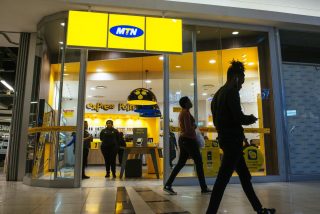Nigeria has been keen on closing the financial inclusion gap to achieve economic development, raise living standards, and reduce poverty and inequality. The government has put in place several policies and initiatives to achieve its goal of 80 per cent bankable adult financial inclusion by 2020. However, only 64 per cent of bankable adults were financially included by the end of the target year. To improve that percentage, the Central Bank of Nigeria (CBN) recently granted MTN and Airtel Africa approval-in-principle (AIP) for Payment Service Bank (PSB) licenses. The AIP is the first step towards a final approval contingent on the duo meeting certain conditions.
Payment Service Banks are a new category of banks with smaller-scale operations compared to commercial banks. The primary goal of establishing PSBs is to increase financial inclusion in rural areas by facilitating high-volume, low-value transactions in a secure, technology-driven environment. This means that in addition to the usual withdraw and send transactions associated with the financial platforms of these telecom brands, they can now engage in more banking activities such as accepting customer deposits, issuing debit and prepaid cards, operating an electronic wallet, investing in FGN and CBN securities, and any other activities prescribed by the Central Bank.
MTN will operate as a PSB via its well-known MoMo Payment Service Bank, and Airtel will do the same via its Smartcash Payment Service Bank. This brings MoMo and Smart Cash into the cohort of Globacom’s Money Master and 9Mobile’s 9PSB, other telecom brands already operating in the financial ecosystem. Although PSBs operate similarly to commercial banks, certain activities distinguish them. PSBs cannot make loans, issue credit cards, accept foreign currency deposits, or engage in insurance underwriting.
Driving financial inclusion in Nigeria
CBN is seeking to onboard 95 per cent of the bankable adults into financial services by 2024, and the telecommunication industry is one of the best bets to achieve this in a short while. Both MTN and Airtel have a massive infrastructure, and penetration into communities held back by long distances would be easier.
As of October 2021, MTN, which has the highest number of subscribers in the telecom sector, had 67.5 million subscribers, while Airtel Nigeria had 42 million subscribers. Although there’s the issue of people having multiple sims, the sifted numbers from just these two telcos would still be higher than the number of bank account holders in Nigeria, which is 50,728,469. Organically, this translates to increased financial inclusion because, rather than a bank account, all you need is a phone number to open an account, send and receive money, check balance, make deposits, cash withdrawals, and more.
Nigeria’s population is constantly increasing, yet many remain unbanked, hence the need for more initiatives to improve this situation. With MTN and Airtel’s final PSB approval, the financial industry would see an influx of new players. Subsidiaries of mobile network operators (aka telcos), mobile money operators, retail chains (supermarkets), and banking agents will all want to follow the trail.
Written by Agbetiloye Adekunle








